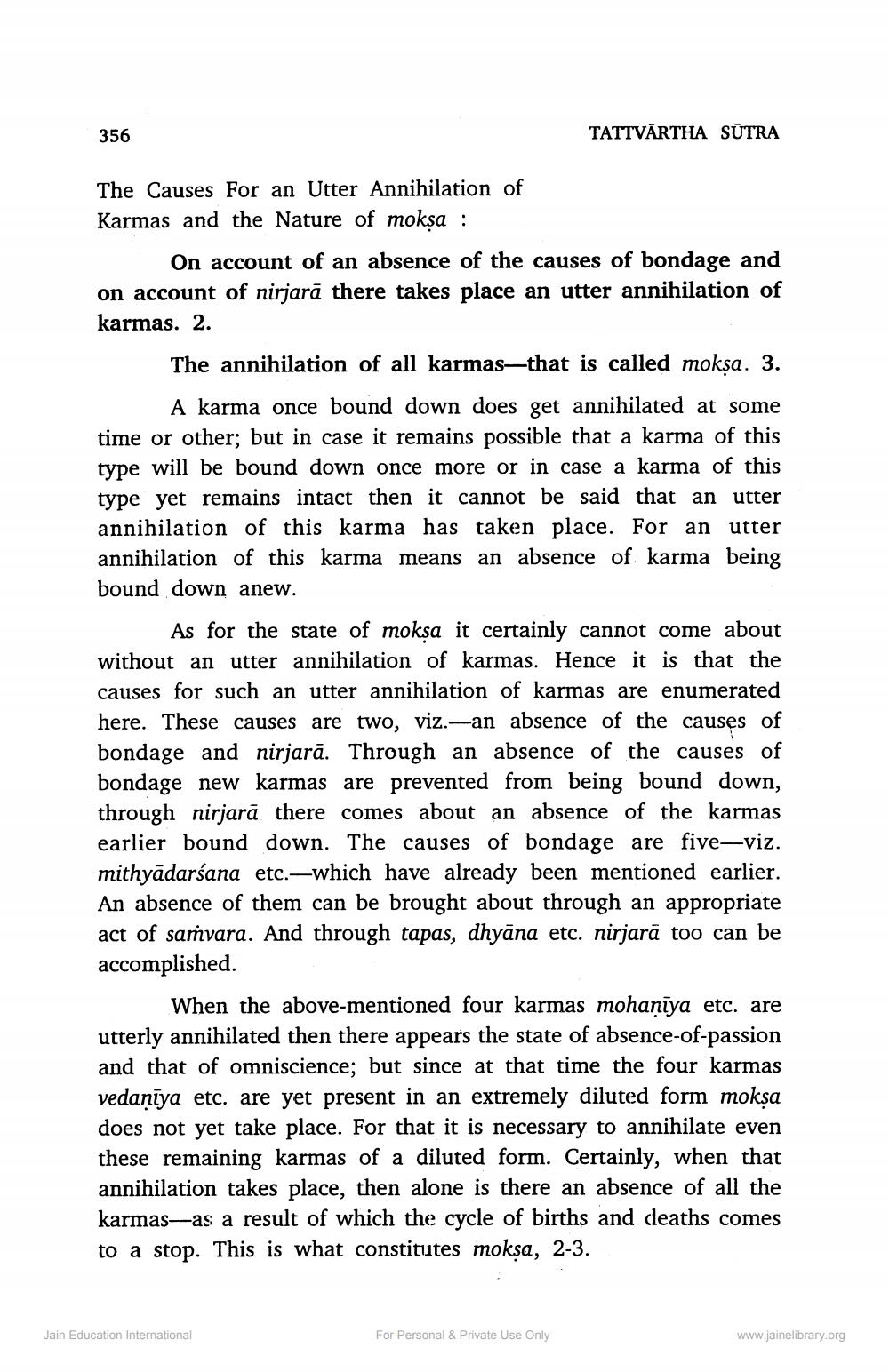________________
356
TATTVĀRTHA SŪTRA
The Causes For an Utter Annihilation of Karmas and the Nature of mokṣa :
On account of an absence of the causes of bondage and on account of nirjarā there takes place an utter annihilation of karmas. 2.
The annihilation of all karmas—that is called mokṣa. 3.
A karma once bound down does get annihilated at some time or other; but in case it remains possible that a karma of this type will be bound down once more or in case a karma of this type yet remains intact then it cannot be said that an utter annihilation of this karma has taken place. For an utter annihilation of this karma means an absence of karma being bound down anew.
As for the state of mokṣa it certainly cannot come about without an utter annihilation of karmas. Hence it is that the causes for such an utter annihilation of karmas are enumerated here. These causes are two, viz.—an absence of the causes of bondage and nirjarā. Through an absence of the causes of bondage new karmas are prevented from being bound down, through nirjarā there comes about an absence of the karmas earlier bound down. The causes of bondage are five-viz. mithyādarśana etc.—which have already been mentioned earlier. An absence of them can be brought about through an appropriate act of samvara. And through tapas, dhyāna etc. nirjarā too can be accomplished.
When the above-mentioned four karmas mohanīya etc. are utterly annihilated then there appears the state of absence-of-passion and that of omniscience; but since at that time the four karmas vedaniya etc. are yet present in an extremely diluted form mokşa does not yet take place. For that it is necessary to annihilate even these remaining karmas of a diluted form. Certainly, when that annihilation takes place, then alone is there an absence of all the karmas—as a result of which the cycle of births and deaths comes to a stop. This is what constitutes moksa, 2-3.
Jain Education International
For Personal & Private Use Only
www.jainelibrary.org




